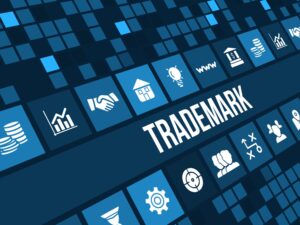Table of Contents
ToggleHow to Choose Your United States Trademark Lawyer
When building a successful brand, safeguarding your intellectual property is paramount. Trademarks and copyrights are vital tools in protecting your brand’s unique elements and ensuring your business’s longevity. This guide will help you navigate the trademark registration process and provide practical tips on selecting the right U.S. trademark lawyer to effectively protect your brand.
Understanding the Trademark Registration Process
Before discussing the risks associated with using cheap online trademark services, it’s important to grasp the fundamentals of trademark registration. A trademark is a distinctive symbol, word, or phrase that identifies a product or service. Registering your trademark with the United States Patent and Trademark Office (USPTO) grants you exclusive rights to use the mark and prevents others from using similar marks that could potentially confuse consumers.
Trademarks safeguard key brand identifiers such as names, logos, slogans, and other distinctive features of your products or services. By registering your trademark, you protect your brand’s reputation and help prevent costly legal disputes over potential infringement.
Similarly, copyrights protect original creative works, including artwork, designs, and music. Registering your copyrights establishes a public record of ownership, making it easier to enforce your rights in cases of infringement. This protection is particularly critical for businesses that rely on creative content to stand out in the marketplace.
Failure to register your trademarks and copyrights can lead to significant consequences, such as difficulties proving ownership and enforcing rights in court. Without proper registration, you may also lose the ability to seek statutory damages, which can be substantially higher than actual damages.
Given the specific protections each type of registration offers, it’s essential to register your assets accordingly. While trademarks and copyrights cover different aspects of intellectual property, both are integral to protecting your brand.
Tips for Choosing a Trusted U.S. Trademark Lawyer
Selecting the right trademark lawyer is crucial to ensuring that your trademarks are properly registered and protected in the United States. Here are key factors to consider:
1. Check Credentials and Experience
When choosing a trademark lawyer, it’s vital to verify their credentials and experience. Ensure that the lawyer is licensed to practice in the United States and specializes in trademark law. You can confirm their qualifications by checking with state bar associations or consulting the USPTO’s roster of trademark attorneys. A competent lawyer should have a proven track record of successfully registering trademarks and managing trademark disputes. Ask about their experience with cases similar to yours, their understanding of industry-specific challenges, and their familiarity with USPTO procedures. A lawyer with substantial experience will be better equipped to navigate the complexities of trademark registration and protection.
2. Look for Specialization in Trademark Law
Trademark law is a specialized field that demands a deep understanding of both legal principles and the practicalities of brand protection. Ensure that the lawyer you select focuses specifically on intellectual property law, particularly trademarks. Specialists in this area are more adept at understanding the nuances of the USPTO’s application process, anticipating potential challenges, and crafting effective strategies to address them. They are also more likely to stay updated on changes in trademark law and USPTO procedures, which can significantly impact your application’s success.
3. Review Client Testimonials and Representative Matters
Client testimonials and representative matters provide valuable insights into a lawyer’s expertise and client service. Look for feedback from clients with needs similar to yours, such as trademark registration, enforcement, or dispute resolution. Positive reviews from reputable companies, especially within your industry, can signal a lawyer’s ability to handle specific trademark issues effectively. Additionally, reviewing representative matters that detail successful trademark applications, oppositions, or litigation outcomes can highlight a lawyer’s problem-solving skills and strategic approach.
4. Ask About Their Approach to Trademark Strategy
A reputable trademark lawyer does more than assist with registration; they help you develop a comprehensive trademark strategy tailored to your business needs. During your consultation, inquire about their approach to brand protection, including how they conduct trademark searches, their methods for monitoring potential infringements, and their strategies for enforcement. A proactive lawyer should offer insights into maintaining your trademark portfolio, including advice on international trademark protection, renewal procedures, and managing potential conflicts. Understanding their strategic approach will help ensure you receive the necessary support to safeguard your intellectual property.
5. Inquire About Their Communication and Accessibility
Effective communication is crucial when working with a trademark lawyer. Ensure the lawyer you choose is accessible, responsive, and committed to keeping you informed throughout the trademark application and enforcement processes. Discuss their preferred communication methods, typical response times, and how they handle client queries. A lawyer who values transparency and provides regular updates on your application status or potential issues will build trust and confidence in their ability to protect your brand.
6. Check the USPTO Portal
The USPTO makes almost all documents related to a trademark application available to the public. Look at some of the matters handled by a trademark lawyer you are considering hiring. While for some matters the paper trail is thin (possibly a sign of smooth sailing), you will eventually find responses to office actions, correspondence chains, and other material that allows you to have a first-hand look at the attorney’s working style.
7. Consider the Lawyer’s Network and Resources
A well-connected trademark lawyer can offer additional resources and support that might be essential for your business. Lawyers with strong relationships within the USPTO, industry experts, and international legal networks can provide a range of services, such as international trademark registration or managing disputes in multiple jurisdictions. Additionally, consider choosing a law firm that is a member of reputable international attorney groups. Membership in such groups ensures that the lawyer has access to a global network of legal professionals, enhancing their ability to handle cross-border trademark issues and coordinate with foreign counsel. This network can be invaluable in navigating complex situations, such as disputes involving foreign entities or combating counterfeiting efforts.
8. Look for Membership in Prestigious Trademark Associations
Membership in reputable trademark associations, and even better leadership positions at such associations, for example the International Trademark Association (INTA) and the Inter-American Association of Intellectual Property (ASIPI), can be a strong indicator of a lawyer’s experience and competence in the field of trademark law. INTA is a global organization of trademark professionals, including lawyers, brand owners, and academics, dedicated to the advancement of trademarks and related intellectual property rights. Membership in such organizations often reflects a lawyer’s commitment to staying current with developments in trademark law, participating in continuing education, and adhering to high professional standards.
Being a member of INTA or similar associations provides trademark lawyers with access to a wealth of resources, including educational programs, policy advocacy, networking opportunities, and professional development tools. These resources enable lawyers to stay informed about the latest trends, legal updates, and best practices in trademark protection. Lawyers who actively participate in INTA events, webinars, and committees are often more engaged with the global trademark community and better equipped to handle complex trademark issues.
9. Evaluate Cost and Value
While cost is always a consideration when selecting a trademark lawyer, it should not be the only factor. Evaluate the value the lawyer provides regarding their expertise, the range of services offered, and their ability to comprehensively protect your brand. Sometimes, a lawyer with higher fees may offer more thorough service and better protection, ultimately saving you money and effort in the long run by preventing costly legal disputes or trademark rejections. Balancing cost against value will help ensure you choose a lawyer who can effectively safeguard your intellectual property.
Beware of Online Trademark Services
While online trademark services may seem cost-effective, they come with significant risks and limitations. Here are some key drawbacks of relying on these services:
1. Lack of Personalized Legal Advice
A qualified attorney assesses your specific circumstances and provides tailored advice for your trademark application, including selecting appropriate trademark classes and conducting thorough searches for conflicting marks. Online services typically only perform basic tasks, which may not adequately protect your brand.
2. Limited Due Diligence
A professional attorney conducts a comprehensive trademark search, identifying potential conflicts that online services may overlook. Addressing these conflicts early allows you to modify your trademark or choose an alternative that is less likely to face challenges, avoiding costly disputes later on.
3. Potential for Errors and Omissions
Online services are notorious for missing essential information or documentation required for a successful trademark application. Errors in calculating or paying filing fees can lead to delays or outright rejection of your application, causing unnecessary frustration and expense.
4. Lack of Representation in Case of Oppositions
If a third party opposes your trademark application, you will need legal representation to defend your rights. Online services generally do not provide this critical support, leaving you vulnerable and unprotected.
5. Limited Assistance with Enforcement
If your trademark is infringed upon, you’ll need legal guidance to take appropriate action. Online services often lack the resources or expertise to provide effective enforcement support, putting your brand at risk.
6. Limited Understanding of International Trademark Law
Online services are even less reliable for international trademark registrations, lacking the expertise to navigate the complexities of global trademark law. Missteps in international filings can result in lost rights or inadequate protection, as shown by cases where companies relied on online services and ended up with incorrect or ineffective filings.
7. Miscommunication
The lack of personal interaction with online services can lead to misunderstandings and errors in your application. Many companies have encountered issues with their online service getting product details wrong, leading to incorrect trademark classifications and further complications.
Case Studies
To illustrate the risks associated with using online trademark services, I want to share some real-world examples based on cases I have personally encountered, as well as those seen by other lawyers in my firm or described to me by trusted trademark attorneys. These examples highlight common mistakes businesses make when relying on online services and underscore the importance of having experienced legal counsel to navigate the complexities of trademark law effectively.
1. Incorrect Trademark Classification
A small beverage company decided to use an online trademark registration service to save on costs. The online platform incorrectly categorized their product as “non-alcoholic beverages,” while the company actually produced kombucha, a product containing trace amounts of alcohol. This mistake led to a rejection by the USPTO, as their product did not fit the classification under which the trademark was filed. The company had to refile the application, incurring additional costs and facing delays in securing trademark protection. This left them vulnerable to potential infringement during the interim period.
2. Inadequate Trademark Search and Subsequent Opposition
An apparel startup chose a popular online service to register its brand name. The service performed only a basic search, missing a similar trademark that had already been registered in the same category. Once the startup filed its application, the owner of the existing trademark filed an opposition, arguing that the new trademark would cause consumer confusion. The startup had to hire a specialized trademark lawyer to navigate the opposition, which led to significant legal fees and delayed their product launch.
3. Overlooked Conflicts with Existing Trademarks
A tech company used an online trademark service to register its brand globally. However, the service failed to conduct a thorough search across all relevant markets, particularly in countries where the company planned to expand. As a result, the company discovered later that their trademark was already registered by a local competitor in several key markets, such as Canada and Australia. This oversight forced the company to either negotiate costly buyouts, change their branding strategy, or rebrand entirely in those markets, leading to substantial financial and reputational costs.
4. Incomplete or Inaccurate Applications
A cosmetics company used an online service to file its trademark application, but the service failed to include all necessary documentation, such as a proper specimen showing how the trademark was being used in commerce. The USPTO examiner issued an Office Action, requiring additional documentation and clarification. The company, unfamiliar with the process, struggled to meet the USPTO’s requirements and eventually had to hire a trademark attorney to rectify the errors. This resulted in additional costs and delays, further complicating their brand protection efforts.
An online trademark service filed for trademark protection in Taiwan for a company that believed they were securing protection in Mainland China. The online service failed to differentiate between the legal systems and trademark jurisdictions of Taiwan and China, causing the company to miss the crucial opportunity to file in Mainland China. Meanwhile, a competitor filed for a similar trademark in China, gaining a significant advantage. The company faced a lengthy and expensive legal battle to try and reclaim its rights in China, which could have been avoided with a more knowledgeable service.
5. Incorrect Handling of a Trademark Renewal
A mid-sized electronics firm relied on an online service for the renewal of their trademark registration. The service failed to properly file the Declaration of Use and accompanying specimens required by the USPTO. As a result, the USPTO canceled the company’s trademark, leaving their brand unprotected. By the time the company realized the mistake, a competitor had filed for a similar mark. The firm had to engage in a costly legal battle to prove its prior use and regain its trademark rights, a situation that could have been avoided with competent legal guidance.
These examples demonstrate the significant risks associated with using cheap online trademark services. While these services may seem like a convenient and cost-effective option, it’s essential to invest in a qualified trademark attorney to ensure the successful protection of your intellectual property.
6. Inability to Handle Trademark Oppositions
A mid-sized skincare company, aiming to expand its line of organic beauty products, used an online trademark service to register its brand name. When a third party filed an opposition, claiming similarity to their existing trademark in the beauty industry, the skincare company was unprepared to effectively defend its application. Lacking proper legal representation, they lost the trademark, which allowed competitors to use a similar name and potentially confuse customers, diluting their brand’s uniqueness and market position.
7. Missed Deadlines
A tech startup specializing in innovative wearable fitness trackers relied on an online service for its trademark registration. However, they missed a crucial deadline for responding to an office action from the USPTO due to a lack of proper guidance and follow-up from the service. This oversight led to the abandonment of their trademark application. Forced to refile, the startup incurred additional costs and faced delays in securing their market position, which impacted their product launch timeline and market visibility.
8. Limited Understanding of International Trademark Law
A beverage company known for its unique line of natural energy drinks decided to expand internationally and used an online service to register its trademark in multiple countries. The service failed to consider the specific legal requirements in each jurisdiction. Consequently, the company’s trademark applications were rejected in several key markets, including the EU and Australia. This failure significantly limited their ability to protect their brand abroad and opened the door for local competitors to capitalize on their brand’s reputation.
These examples underscore the importance of using a qualified trademark attorney who understands the complexities of trademark law and can provide the tailored guidance necessary to protect your brand effectively.
Conclusion
While inexpensive online trademark services may appear tempting, the potential risks and limitations far outweigh the benefits. Investing in a qualified trademark attorney provides you with expert guidance, personalized attention, and comprehensive representation needed to protect your intellectual property effectively. Remember, when it comes to trademarks, it’s better to be safe than sorry. By choosing a reputable attorney, you can avoid costly mistakes and ensure the long-term success and security of your brand.
























